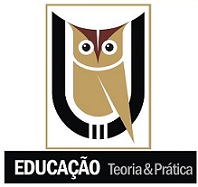PISA impact on Brazilian Academic Production: contributions for the discussion on scholar curriculum
Keywords:
Evaluation. Curriculum. PISA.Abstract
This article aims to discuss the relationship between assessment and curriculum, using as object of analysis the Brazilian academic production that has as one of its important argumentation elements the International Student Assessment Program- PISA. Based on concepts by Perelman and Olbrechts-Tyteca 51 articles published in scientific journals between 2001-2009 are analyzed. The questions the research aimed to answer were: what place and value the authors assign to PISA? To what extent and how do they articulate their constructs with the possibility that large-scale assessments of inducing manifest curriculum? Conclusions of this exploratory study are presented through three indicators: PISA as premised-fact, as premised-assumption and as argument. Also, theses and arguments present in studies that interrogate PISA from the point of view of the curriculum that induces it are recovered. It seems that PISA is consolidated as an important contribution to the making of objects for study and of reference analysis. However, only a few articles have been found that deeply address the curriculum that PISA and others assessment systems require.Downloads
How to Cite
Issue
Section
License
Authors who publish in this journal agree to the following terms:
a) Authors assign copyright to the journal, with the work simultaneously licensed under the Creative Commons Attribution License that allows sharing of the work with acknowledgment of authorship and publication in this journal.
b) The policy adopted by the Editorial Committee is to assign copyright only after a period of 30 months from the date of publication of the article. After this time, authors interested in publishing the same text in another work must send a letter to the Editorial Committee requesting the release of the assignment of copyright and wait for a response.
c) This journal provides public access to all its content, since this allows greater visibility and reach of published articles and reviews. For more information on this approach, visit the Public Knowledge Project, a project that developed this system to improve the academic and public quality of research, by distributing OJS as well as other software to support the public access publication system to academic sources. The names and email addresses on this website will be used exclusively for the purposes of the journal and will not be available for other purposes. This journal provides open any other party  This work is licensed under a Creative Commons License
This work is licensed under a Creative Commons License










